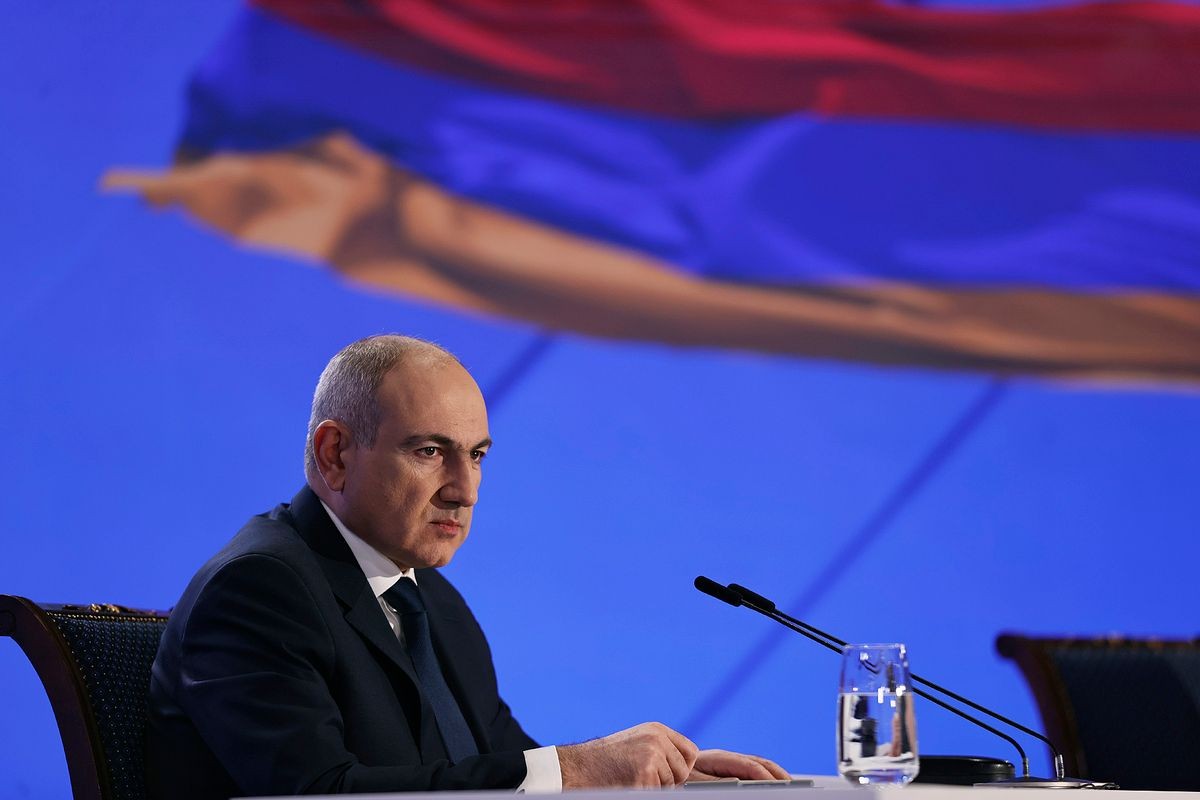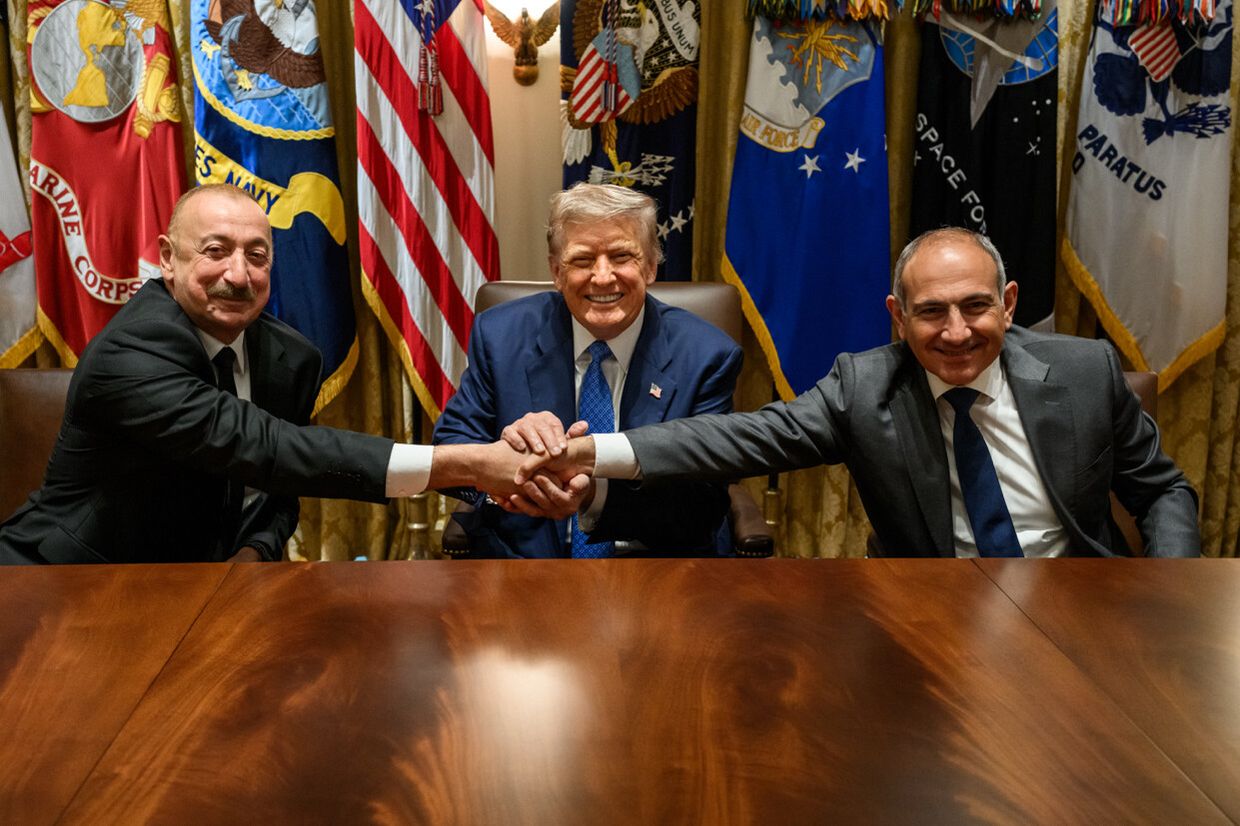On anniversary of Armenia’s declaration of independence, Pashinyan blames USSR for Karabakh Movement

Prime Minister Nikol Pashinyan has issued a statement on the 35th anniversary of Armenia’s declaration of independence, calling the ‘key ideological provisions’ of the document ‘conflict-oriented’ and a result of ‘collective patriotism’ that had been ‘instilled in us by the Soviet Union’.
The ideology, Pashinyan argued on Saturday, ‘shaped our socio-psychology, which eventually led to the Karabakh Movement’, adding that ‘its deep, subconscious goal was the strategic impossibility of the existence of an independent Armenian state’.
‘A complete and comprehensive analysis of the information and reality available to me as prime minister has brought me to the unshakable conviction that we should not continue the Karabakh Movement, as it means abolishing the independence of the Republic of Armenia’.
Pashinyan’s statement was the latest instance of him criticising the Karabakh Movement, which pushed for the independence of Nagorno-Karabakh in the 1980s and 1990s. Two full-scale wars were fought over the territory, as well as several smaller clashes, with Azerbaijan ultimately seizing Nagorno-Karabakh in a final lightning offensive in 2023 that resulted in the exodus of virtually all of the region’s Armenian population.
In Saturday’s statement, Pashinyan also addressed the Second Nagorno Karabakh War.
Pashinyan said that offering concessions at the time was ‘was the only theoretical opportunity to avoid the 44-day war’.
But at the same time, the concessions would have resulted in the loss of Armenia’s independence, Pashinyan said, adding that, ‘instead, we adopted a strategy to preserve Armenia’s independence and make that independence a reality’.
Pashinyan then went on to argue that ‘The expression of that strategy is the ideology of the “Real Armenia”, which has made peace between Armenia and Azerbaijan possible, has made real dialogue with Turkey possible, which has given us an opportunity to deepen our relations with Georgia and [Iran], and has allowed us to become a real and interesting partner for the world’.
Pashinyan was referring to his ‘Real Armenia’ ideology, which stipulates that Armenians must accept modern Armenia within its current borders.
‘Peace has been established, and it must become a subject of daily care and concern, it must become institutional. August 2025 has become the beginning of a peaceful and prosperous life for the Republic of Armenia’, Pashinyan concluded.
Earlier in August, Armenia and Azerbaijan made unprecedented steps towards cementing a peace agreement at a meeting between Pashinyan, Azerbaijani President Ilham Aliyev, and US President Donald Trump in Washington.
The White House meeting resulted in both Aliyev and Pashinyan signing a seven-point declaration enshrining the progress towards peace, as well as initialling a 17-part peace deal. Nonetheless, the peace agreement remains unsigned officially, as Azerbaijan has demanded that Armenia change its constitution as a precondition. It is unknown when the peace treaty will ultimately be inked.
Perhaps the most tangible outcome of the meeting was the announcement of a plan, dubbed the Trump Route for International Peace and Prosperity (TRIPP), to connect Azerbaijan to its exclave of Nakhchivan, through Armenian territory. The route is intended to be managed by a yet-unnamed US company.
For ease of reading, we choose not to use qualifiers such as ‘de facto’, ‘unrecognised’, or ‘partially recognised’ when discussing institutions or political positions within Abkhazia, Nagorno-Karabakh, and South Ossetia. This does not imply a position on their status.












